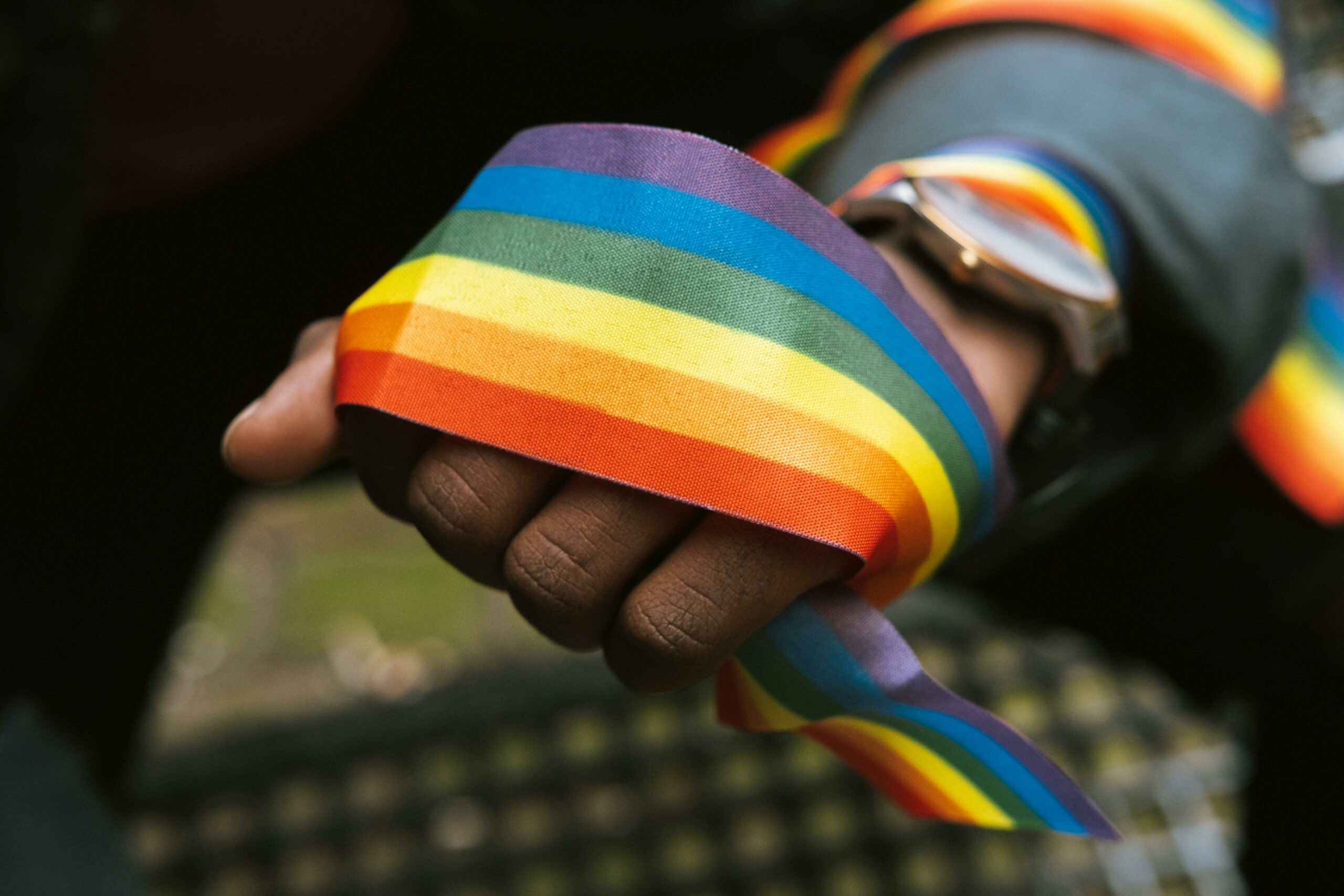Kayleigh Luna is a 2024 JCal reporter from San Luis Obispo County.
A partnership between AAJA and / CalMatters

A partnership between AAJA and / CalMatters

JCal is a partnership between AAJA and CalMatters
2024 Program
California's Next Workforce
SLO County is working on building a safe environment for the LGBTQ+.
July 18, 2024

San Luis Obispo County is making strides toward safe and comfortable environments for LGBTQ+ individuals in the modern-day workforce, but the work is far from done. Many different minority groups are still discriminated against today even though they are just as human as everyone else on this planet. One of these groups is the LGBTQ+ community.
Organizations in San Luis Obispo County — including the county government — are attempting to minimize the discrimination they face. The county’s policy against discrimination affirms existing civil rights, writing: “Discrimination is the unequal treatment of individuals with respect to the terms and conditions of their employment, based on their membership in a protected category.” This policy ensures that employers will not discriminate against anyone because of their sexual orientation, gender expression, or identity, which are among their many legally protected statuses.
District 30 Assemblymember Dawn Addis, a Democrat who represents much of the Central Coast, including San Luis Obispo County, taught for 20 years in the county. The long-time teacher-turned-legislator stressed the importance of these programs.
“Creating safe, inclusive schools, and affirming schools, is critically important for helping grow the confidence that people need when they’re going to enter into the workforce, and teaching people tools to deal with stress and to work in a diverse environment,” she said.
Addis also mentioned efforts the California legislature has made toward further protecting trans students, naming the SAFETY Act as a “really important piece of legislation … in the schools… that I think affects the workforce (too).”
The act would prohibit teachers from outing trans students to their parents through “gender notification” policies. Over the last year, several school districts across California have tried to pass such policies.
Addis has also worked on Title IX reform, namely Assembly Bill 1905, to create more protections within universities.
“When sexual harassment occurs, and often, LGBT people are most at risk of sexual harassment, (it’s common) that people in leadership at our university systems are not able to have what’s called ‘retreat rights,’” she said.
Retreat rights are only given to faculty who gave up their tenured job in order to take on an administrator’s job. These rights give faculty the ability to return to their previous campus if another position falls through. This means that if an LGBT person leaves their tenured job to take on an administrator’s role and is sexually harassed, they do not have the right to return to their prior job.
The need for such a right is backed up by a new study by the Williams Institute at UCLA School of Law.
“LGBT people are nearly four times more likely than non-LGBT people to experience violent victimization, including rape, sexual assault, and aggravated or simple assault,” the study’s authors write.
There are also community centers in the county that provide support to LGBTQ+ residents in the county, including the Gala Pride and Diversity Center, which offers phone support with The Trevor Project, Central Coast Hotline, Lumina Alliance, and Trans Lifeline. More resources they offer are support groups, a video library, and the Hatler Memorial Library with LGBTQ+ literature.
For queer and trans students preparing to enter the workforce, wellness programs in high schools, such as Atascadero High School’s wellness center, can provide support.
Kamela Proulx, the Wellness Center Coordinator at Atascadero High School, when asked how the safety of LGBT people has evolved in San Luis Obispo County over time, shared that discrimination is still there.
“It’s not as rampant as it might be in other areas,” she said. “People have felt more comfortable being themselves in the workplace. You know, not all places are as safe as others. But there has been improvement, thankfully.”
If you’re a member of the LGBTQ+ community in crisis, the following hotlines offer community-specific support:
The Trevor Project (text, chat and call)
Trans Lifeline (call 1-877-565-8860)
THRIVE Lifeline (text THRIVE to 313-662-8209)
Kayleigh Luna is a 2024 JCal reporter from San Luis Obispo County.

JCal is a free program that immerses California high school students into the state’s news ecosystem. It is a collaboration between the Asian American Journalists Association and CalMatters.
Contact us at michael@calmatters.org or support@aaja.org.
Subscribe to aaja’s newsletter